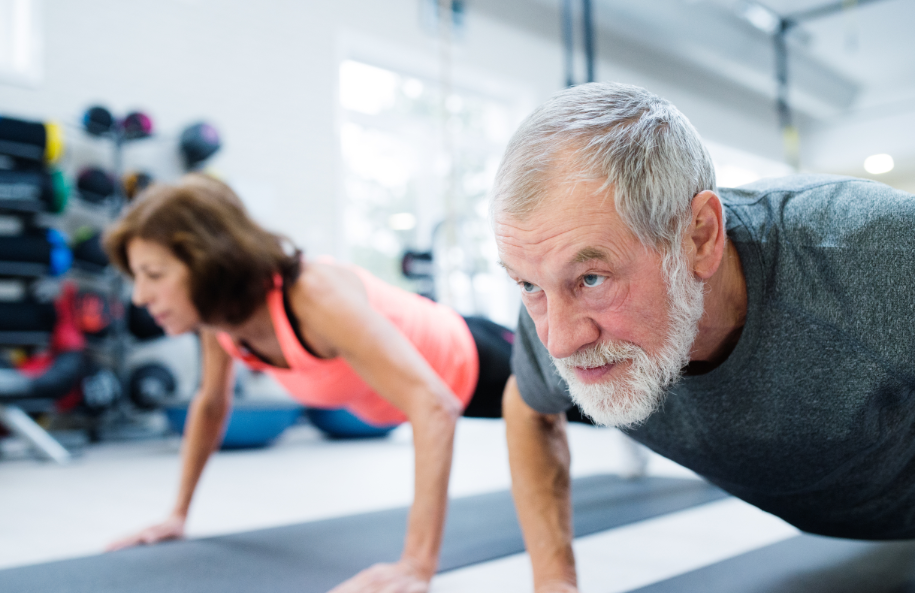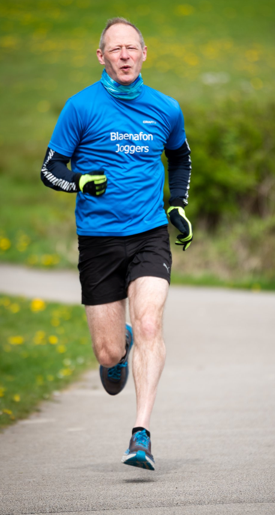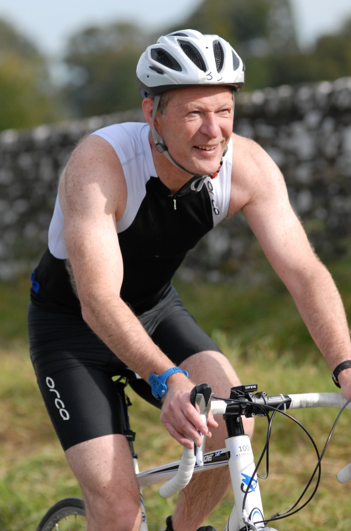Fitness with the over 50's
By Mike James | 10th June 2019 | Advice
 Fitness with the Over 50's
Fitness with the Over 50's
Sportsinjuryfix member Jon Tibke of Personal Best is a lifelong runner and who has participated in all kinds of running events, from the track to the marathon. He also participates in triathlon and is a former rugby and football player. Jon specialises in sports and remedial massage, running niggles and injuries and over 50's fitness. Jon continues to evolve as an over 50's fitness competitor, embarking of a career as a masters athlete on the track. Jon offers some thoughts on fitness for the over 50's.

First of all, I should state some cautions. As always, we need to be aware of the medical background of clients and advise potential new clients of the need to check with their GP when undertaking new exercise regimes. This is obviously even more important with older clients.
Having said that, in many ways 50 is just a number and in the 50-plus age bracket are plenty of people who are very fit, health conscious and well informed. I am in this age group myself, so fitness beyond 50 is both a personal and a professional interest.
What I discuss below is very much based on personal experience and experiences with clients, as well as listening to the over 50 population as much as possible.
I reference some research and useful sources further down, but I will state clearly that this blog is largely about things that I think we should consider and I claim no empirical authority for what I suggest is important.

There are plenty of activities, programmes, online materials etc that offer suggestions of what the over 50's might actually do to keep fit and healthy, so I am aiming here instead to look at some of the issues that can arise with members of this age range.
A Broad Category
‘Over 50’ covers a lot of people, who encompass a huge range of levels of fitness and histories of exercise (or abstinence from exercise). I think there are four key groups:
1: those who have been regular exercisers throughout their adult lives, possibly involved in competitive sports
2: those who have been involved in sports but no longer compete and have let their fitness decline
3: those who have had an on/off, love/hate relationship with exercise, conscious that they should be doing something but never really finding something that keeps them interested and motivated
4: those who have never exercised, which can include individuals who have been advised to start some sort of exercise regime due to health concerns.

Taking each group in turn, these are some of the issues I have encountered.
With the first group, I’ve sometimes found that managing expectations is the biggest challenge. Clients in this group can be prone to compare themselves with past successes, sometimes even from 20 or more years previously, so they end up giving themselves a hard time because they cannot match their former achievements.
It can be quite a delicate matter to help them see that some decline in performance is inevitable and also to help them recognise that the goals of their training now are different; even if they are age group competitors, the key goals need to shift towards staying active and keeping healthy right into old age.
I have had runner clients who have previously won national representative honours tell me that they are ‘now rubbish’. This outlook can depress them, the precise opposite of what we want their fitness activities to achieve.
This problem can occur with members of the second group too, who can be frustrated that they are now a considerable way off what they used to be able to do and have ‘let themselves go’. I have found that members of this group can quickly injure themselves, in their desire to quickly be able to do what they have done in the past.
Again, conversations need to take place about what the goals now are, as well about rates of progress.
The third and fourth groups are ones that I think many of us spend a lot of our time on and are the focus of a whole host of international research and initiatives. It’s worthwhile to talk about what has put these clients off in their previous attempts to be fitter. I could write a whole different blog exploring this.
I hear comments about feeling uncomfortable surrounded by younger gym users and sometimes that in exercise classes young instructors don’t keep a close enough watch on new, older members. Recently I have heard that again from someone who has sustained injury in a yoga class, though I must stress that I am not suggesting that this is a persistent problem with young (or any age) instructors – I am reporting what I hear.
Sometimes it all seems too ‘sporty’ for some older people, who perhaps have not been pointed in the direction of local groups that are not all clad in the latest lycra offerings. Local walking groups often have their walks led at different paces and distances and in some towns there are walking groups who use the town rather than troop out into the hills.
Either way, there is guidance offered by these groups and an opportunity for social interaction, which is an important benefit. Again another blog there – exercise as a means of combating loneliness. At walking pace again, there are some great team sport initiatives about, such as walking football and walking rugby.
Popular fitness industry-speak does not always appeal to groups three and four, particularly terms like high intensity and boot camp. For some older people, this sounds like the PE teacher they despised many years ago, I am sorry to report! I lead a running club and many members, not just the older ones, have talked to me about how they hated running at school.
Another curious thing that many potential members of this club, which is very much a community-fitness oriented club, have said to me is that they intend to join the club once they have got fit. Of course I try to persuade them that they should join the club to get fit, but I do understand their anxieties. They are often concerned that they will hold everyone up, even when its made clear that no one is left behind, all paces are welcome and so forth.
My point is that there can be huge anxiety about exercise, which many of us might struggle to empathise with as its often something that has been a fundamental part of our lives and livelihoods.
Another thing I find is often needed is adaptations of standard routines to accommodate longstanding niggles or currently limited ranges of motion. For example, I have a retired client who decided to buy some dumbbells and get started on a home exercise routine.
Some problems around his neck and shoulders have been exacerbated by this and we’ve found resistance bands a better alternative as you can let the tension go straightaway, whereas if you are pressing a dumbbell above your head and it starts to hurt you have still got to get the weight safely back down to the ground.
It’s important to encourage clients to understand that routines are a guide and one size does not fit all, so adaptations are not signs of failure.

Official Guidance and other Research
We do have some government guidance on fitness and older adults, circulated via the NHS, and WHO.
There is fascinating research exploring the contribution of fitness activity to not only the maintenance of physical well-being but also to what I’d broadly call ‘brain health’.
Organisations that work with this age group across a range of support also have something to offer about exercise, AgeUK offer this advice.
Last Word
I must say I have found the over 50's invariably a good demographic with which to work and I am not just saying that because I am one! Apart from them being appreciative of the help and sometimes overjoyed to find themselves enjoying exercise and seeing progress, I have met fascinating people who have done all manner of remarkable things in their lives.
Right, got to go, a 60-year-old chap is waiting for me to run up a mountain with him – I think he’s from group one!
To book an appointment with Jon, visit his sportsinjuryfix profile here. To find a therapist near you who specialises in working with the older athlete, click here.
To read more of our blogs, click here.
